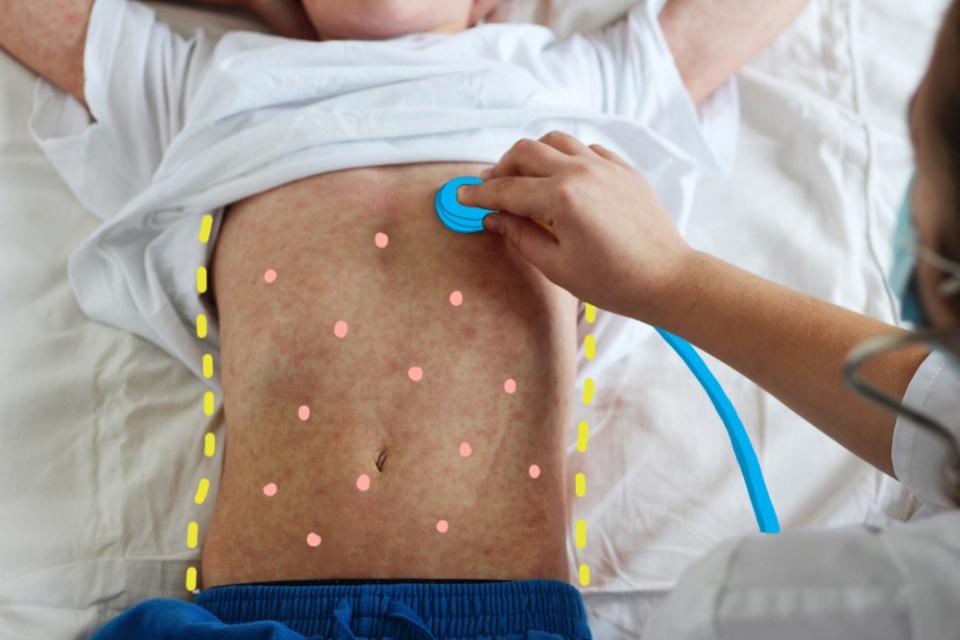New York County Measles State of Emergency: Judge Lifts Order Banning Unvaccinated Minors From Public Places

Updated April 8, 2019
Unvaccinated minors are no longer banned from public places in Rockland County, New York, a state judge declared Friday. Judge Rolf Thorsen said the number of measles cases (167 as of April 5) were not high enough for the county to declare a state of emergency last month.
County Executive Ed Day called the decision “a setback not a defeat,” and promised to continue efforts to prevent future measles cases.
“Our health and legal professionals, joined by my executive team, will assemble Monday morning after a weekend of research with the express purpose of re-strategizing our approach to this growing health crisis,” Day wrote on Facebook. “While we will always comport with the law and court direction, know that all options will be on the table, including the potential of another emergency declaration.”
Original report: March 26, 2019
A large outbreak of measles in Rockland County, New York, has led officials to announce a countywide state of emergency Tuesday.
Starting Wednesday at midnight, anyone under 18 without the MMR vaccine will be banned from public places (outdoor places are excluded) until they receive at least one dose of the vaccination. (Anyone unable to be vaccinated because of medical reasons is excused.)
Those violating the declaration, which ends in 30 days, will have their case sent to the district attorney's office, and parents will be held accountable.
"We must do everything in our power to end this outbreak and protect the health of those who cannot be vaccinated for medical reasons, children too young to be vaccinated, and also those who are at risk," Rockland County Executive Ed Day said during a press conference Tuesday.
The decision comes after more than 100 cases of measles were confirmed in Rockland County since fall 2018. More than 83 percent infected were 18 and younger, and more than 82 percent didn’t have an MMR vaccine, which protects against measles, mumps, and rubella. When administered in two doses, the vaccine is reported to be about 97 percent effective. One dose reduces effectiveness to approximately 93 percent.
“Last year, not just one, but seven unvaccinated travelers diagnosed with measles entered our county between October 1 and October 17, leading to 153 confirmed cases,” Day said. “And this is the longest outbreak in the U.S. due to measles since the disease was officially eradicated in 2000.”
New York isn't the only state to have a recent measles outbreak. Fourteen others—Arizona, California, Colorado, Connecticut, Georgia, Illinois, Kentucky, Michigan, Missouri, New Hampshire, New Jersey, Oregon, Texas, and Washington—also reported outbreaks this year.
RELATED: Unvaccinated Kids Are Being Kept Out of Oregon Schools Until They Prove They've Had Their Shots
Measles is highly contagious—in fact, up to 90 percent of people who aren't immune will become infected after close contact with a person who has it, according to the Centers for Disease Control and Prevention.
Caused by a virus, it can spread through the air by a sneeze or cough. It can also live in the air for up to two hours. Symptoms typically begin seven to 14 days after infection and include fever, cough, runny nose, and watery eyes. Soon after, a red rash appears on the face and continues to spread throughout the entire body.
The measles vaccination program began in 1963. Before that, about 3 to 4 million people became infected with measles annually in the United States, according to the CDC. Out of about 500,000 cases reported to the CDC each year, 48,000 required hospitalization, 1,000 developed encephalitis (inflammation of the brain), and 400 to 500 resulted in death.


